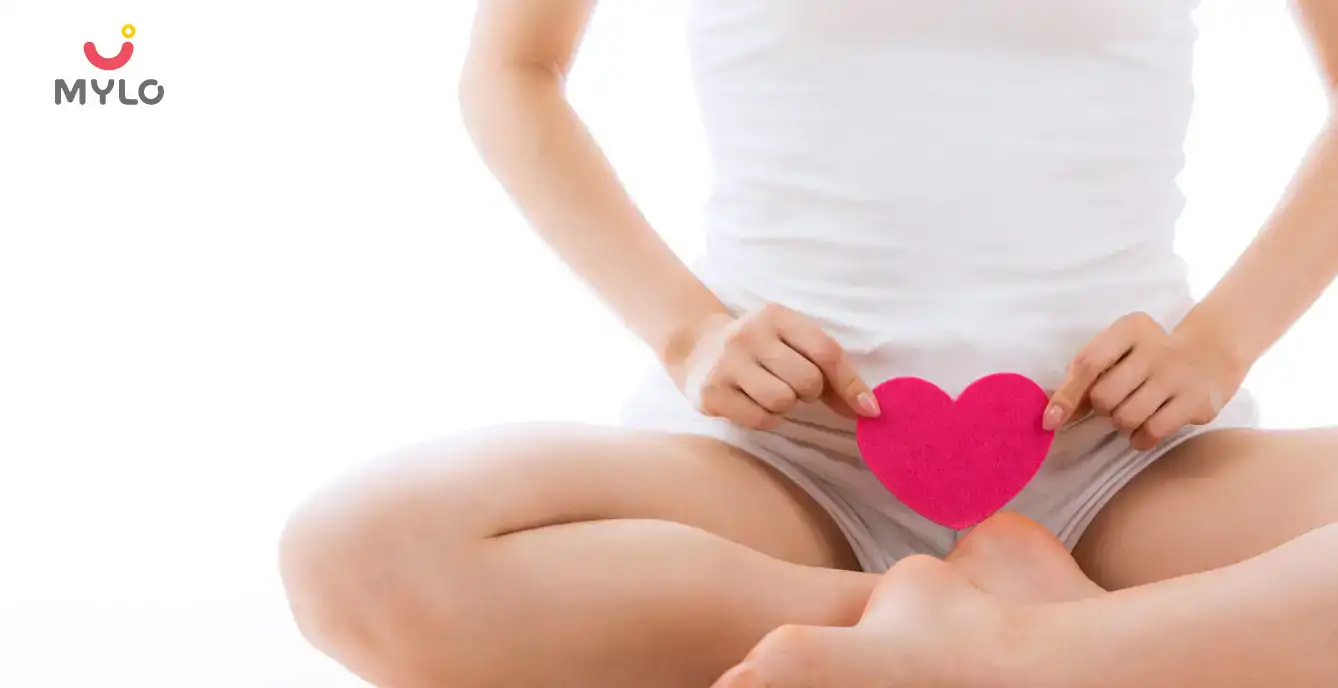- Home

- Postnatal Care

- How To Take Care Of Your Vagina After Delivery
In this Article
Postnatal Care
How To Take Care Of Your Vagina After Delivery
Updated on 3 November 2023
Introduction
A woman's vagina goes through a lot of trauma while giving birth. Following delivery, a woman experiences discomfort and pain in the vaginal area. Even though the newborn is a priority after giving birth, postpartum care must not be overlooked. From discharge to soreness, there is a lot of care that must be given to the vagina after delivery.
Every woman is different and, therefore, her experience during labor, delivery and postpartum health are also different. But it is important to know what to expect and what should be done to care for the vagina after giving birth.
What Vaginal Changes Can A Person Expect After Giving Birth?
It is only natural for a woman to wonder how the delivery will affect her vagina after giving birth. Will it be necessary to perform an episiotomy? How much time will it take for the vagina to heal after delivery? Just like the experience of pregnancy and giving birth is different for every woman, the postpartum experience differs as well. Some of the common experiences women have after giving birth include:
-
Vaginal dryness
-
Soreness of the vagina and perineum
-
Extremely heavy discharge
-
Formation of scar tissue in the vagina
-
Heavier or lighter period flow
-
Widening of the vagina after pregnancy
-
Urinary incontinence while laughing, jumping or coughing
-
Pain and other changes during sexual intercourse
-
Change in the color of the vulva
Tips To Take Care Of Your Vagina After Delivery
A woman's vagina will likely be sore after giving birth, and it should be remembered that the pain will not instantly disappear after delivery. Pain and soreness in the vaginal area can remain for weeks after childbirth. For those wondering about how to take care of your vagina after giving birth, here are some useful tips:
-
Sitz Bath
A sitz bath is a tub of warm water that a person can soak their lower body in to relieve pain caused by swelling or tears. A sitz bath will boost blood flow and reduce inflammation. It will also help tissues heal and repair faster. The hospital may provide people with sitz bath equipment along with other postpartum supplies.
-
Soothing Sprays
Several over-the-counter Benzocaine or Lidocaine sprays are available in the market that can help relieve the pain caused due to hemorrhoids and tearing. People can use these sprays on the skin after changing a pad or using the bathroom.
-
Ice Packs
An ice pack wrapped in a soft washcloth and placed on the vaginal area for a minimum of 10-15 minutes every hour can alleviate the pain. The hospital may provide a few disposable ice packs upon request. Ice packs are also available at the drugstore.
-
Witch Hazel Pads
Witch hazel has chemicals called tannins that go a long way toward fighting bacteria and reducing swelling. This, in turn, reduces the pain and ensures that there is no infection. Witch hazel also has hemostatic properties that can stop minor bleeding. Soak a medicated cotton pad with witch hazel and dab it over the sensitive spots as a soothing treatment.
-
Keep It Dry
After urination or using a sitz bath, fan the vaginal area dry while keeping the legs spread apart. A hairdryer can also be used, on the cool setting. The hairdryer should be kept 6-8 inches away from the vagina for a maximum of 3 minutes. Though it won’t ease the pain completely it will help prevent further inflammation due to the use of toilet paper. It will also keep vaginal yeast infections at bay.
-
OTC Pain Relievers
A variety of over-the-counter pain relievers are available these days that will help relieve pain in the vagina after giving birth. Ibuprofen works as an effective anti-inflammatory agent that will soothe the pain and also help with cramping, post-delivery bleeding and perineal pain. While it is usually safe to take Ibuprofen while nursing, it is strongly recommended to consult a doctor and get a medical prescription before taking any medication.
Conclusion
The most important question on the minds of many women before and after delivery is if their vagina will return to the state it was in before pregnancy and childbirth. A woman's vagina is elastic enough to expand and also capable of retracting. Even though there is a lot of pain associated with childbirth, the vagina can handle the delivery of a child. Furthermore, any discomfort can be treated with medication prescribed by a doctor, along with home remedies to soothe and comfort the vagina after giving birth. By properly caring for the vagina after delivery, the vaginal area can heal and women can focus on spending time with their newborn baby.



Written by
Ishmeet Kaur
Ishmeet is an experienced content writer with a demonstrated history of working in the internet industry. She is skilled in Editing, Public Speaking, Blogging, Creative Writing, and Social Media.
Read MoreGet baby's diet chart, and growth tips

Related Articles
How Respiratory Syncytial Virus (RSV) Impacts Premature Babies Differently: What Every Parent Needs To Know
Adverbs: A Comprehensive Guide to help small children learn the usage of adverbs
Expand Your Child's Vocabulary with words that start with X: Easy, Positive, and Engaging Words, Animals, Countries, and Fruits
Unlocking Language Proficiency: The Ultimate Guide to Top 100 Sight Words for Kindergarten and Beyond
Related Questions
Influenza and boostrix injection kisiko laga hai kya 8 month pregnancy me and q lagta hai ye plz reply me

Hai.... My last period was in feb 24. I tested in 40 th day morning 3:30 .. That is faint line .. I conculed mylo thz app also.... And I asked tha dr wait for 3 to 5 days ... Im also waiting ... Then I test today 4:15 test is sooooo faint ... And I feel in ma body no pregnancy symptoms. What can I do .

Baby kicks KB Marta hai Plz tell mi

PCOD kya hota hai

How to detect pcos

Related Topics
RECENTLY PUBLISHED ARTICLES
our most recent articles

Diet & Nutrition
গর্ভাবস্থায় আলুবোখরা: উপকারিতা ও ঝুঁকি | Prunes During Pregnancy: Benefits & Risks in Bengali

Diet & Nutrition
গর্ভাবস্থায় হিং | ঝুঁকি, সুবিধা এবং অন্যান্য চিকিৎসা | Hing During Pregnancy | Risks, Benefits & Other Treatments in Bengali

Women Specific Issues
স্তনের উপর সাদা দাগ: লক্ষণ, কারণ এবং চিকিৎসা | White Spots on Nipple: Causes, Symptoms, and Treatments in Bengali

Diet & Nutrition
গর্ভাবস্থায় পোহা: উপকারিতা, ধরণ এবং রেসিপি | Poha During Pregnancy: Benefits, Types & Recipes in Bengali

Diet & Nutrition
গর্ভাবস্থায় মাছ: উপকারিতা এবং ঝুঁকি | Fish In Pregnancy: Benefits and Risks in Bengali

Diet & Nutrition
গর্ভাবস্থায় রেড ওয়াইন: পার্শ্ব প্রতিক্রিয়া এবং নির্দেশিকা | Red Wine During Pregnancy: Side Effects & Guidelines in Bengali
- ইনার থাই চ্যাফিং: কারণ, উপসর্গ এবং চিকিৎসা | Inner Thigh Chafing: Causes, Symptoms & Treatment in Bengali
- গর্ভাবস্থায় ব্রাউন রাইস: উপকারিতা ও সতর্কতা | Brown Rice During Pregnancy: Benefits & Precautions in Bengali
- Velamentous Cord Insertion - Precautions, Results & Safety
- Unlock the Secret to Flawless Skin: 7 Must-Have Qualities in a Face Serum
- Unlock the Secret to Radiant Skin: How Vitamin C Serum Can Transform Your Complexion
- Gender No Bar: 10 Reasons Why Everyone Needs a Body Lotion
- Unlock the Secret to Radiant Skin How to Choose the Perfect Body Lotion for Your Skin Type
- Top 10 Reasons to Apply a Body Lotion After Every Bath
- Communication in Toddlers: Milestones & Activities
- How to Improve Vocabulary for Toddlers?
- A Comprehensive Guide to Understanding Placenta Accreta
- Vulvovaginitis in Toddlers Causes, Symptoms and Treatment
- A Comprehensive Guide to Understanding Cerebral Palsy in Children
- Bitter Taste in Mouth During Pregnancy: Understanding the Causes and Remedies


AWARDS AND RECOGNITION
Mylo wins Forbes D2C Disruptor award
Mylo wins The Economic Times Promising Brands 2022
AS SEEN IN
















At Mylo, we help young parents raise happy and healthy families with our innovative new-age solutions:
- Mylo Care: Effective and science-backed personal care and wellness solutions for a joyful you.
- Mylo Baby: Science-backed, gentle and effective personal care & hygiene range for your little one.
- Mylo Community: Trusted and empathetic community of 10mn+ parents and experts.
Product Categories
baby carrier | baby soap | baby wipes | stretch marks cream | baby cream | baby shampoo | baby massage oil | baby hair oil | stretch marks oil | baby body wash | baby powder | baby lotion | diaper rash cream | newborn diapers | teether | baby kajal | baby diapers | cloth diapers |









